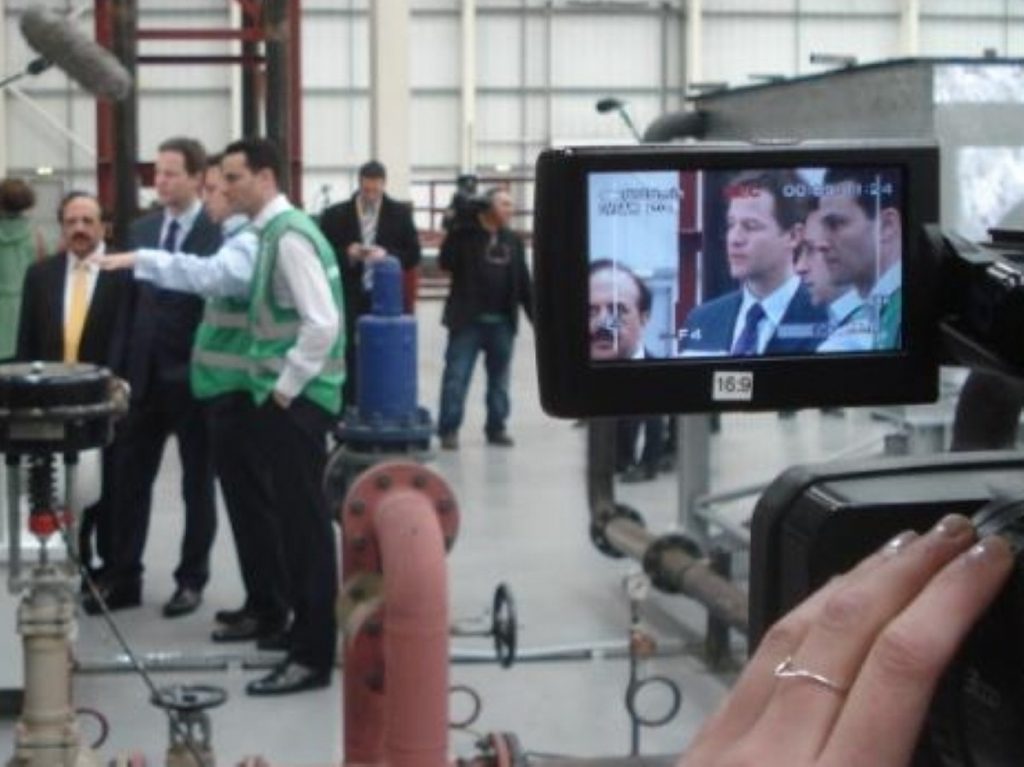Clegg puts his foot down on snoopers’ charter
David Cameron never intended to call for a snoopers' charter before the general election, but if he had any doubts Nick Clegg has put paid to them. In a speech tonight to journalists at the Irish embassy, the deputy prime minister will insist he is not budging on the plan. He will say:
"Let me be really clear, we have every right to invade the privacy of terrorists and those we think want to do us harm – but we should not equate that with invading the privacy of every single person in the UK. They are not the same thing.
"The snoopers' charter is not targeted. It's not proportionate. It's not harmless.
"It would be a new and dramatic shift in the relationship between the state and the individual."
But there's something else in there too. Clegg is also throwing his weight behind a British constitution. He seems irritated by Cameron's persistent demands for a snoopers' charter following every terror attack. Evidently he believes a constitution might rule out that type of thing, in the same way the Liberal Democrats once wanted to use it to stop Labour again pursuing the draconian policies they implemented after September 11th, most of which have now been repealed.
The coalition response to that was to put Ken Clarke and Clegg in charge of a commission on a bill of rights. Both men wanted to stuff the Human Rights Act into the bill of rights in its entirety, then top it up with a host of other rights as well. They found themselves at cross purposes with the Tories, however, who saw the commission as a vehicle to dismantle the Human Rights Act – something they will endeavour to do again this election.
Perhaps Clegg thinks it will be easier to work with a Miliband-led Labour party. The opposition leader has been quiet on civil liberties for a while now but he still sounds forceful on the issue when he's asked about it. His shadow home secretary, Yvette Cooper, is another matter and usually challenges the Home Office from the authoritarian right, including on the snoopers' charter.
There is an internal Labour tug of war between its liberal and authoritarian tendencies on these issues. At the moment they have their own fiefdoms. Justice is liberal through-and-through. Home affairs is typified by authoritarianism. Certainly it's true that if Cooper was ever home secretary she would prove as draconian and problematic as her Labour predecessors under Blair and Brown.
A coalition with the Lib Dems would neutralise the influence of the party's authoritarian wing. And should it ever come to that, a constitution is the type of thing which might appeal to Miliband's lofty political aspirations.
Here's what Clegg will say:
"If we really believe freedom of speech is a founding principle of our democracy, then we must act to protect it.
"I look enviously at America, where every schoolchild is taught from day one that they have inalienable rights – including free expression – which are a fundamental part of what it means to be American.
"I want us to have the same. The time has come for a written constitution with a bill of rights. The Liberal Democrats are committed to a constitutional convention after the general election, and deciding how we enshrine free speech in a British bill of rights should be at the heart of it."
While Clegg does the Churchillian bit, Simon Hughes is in the background reminding journalists of the Liberal Democrats support for the Data Retention and Investigatory Powers (Drip) Act over the summer. This legislation was effectively the snoopers' charter-lite, albeit with a two-year lifespan.
He's also trumpeting their support for the counter-terrorism and security bill, currently going through parliament, which as well as dealing with British fighters going to Syria also requires British internet firms to store the IP addresses of the devices that use their network.
The Lib Dem message is clear and it's broadly the same one they're bringing to everything this year: Middle of the road. Competent, but moderate. Where they see a security issue, they'll deal with it, but there'll be no blanket surveillance powers.
Of course, right now Lib Dem statements mean considerably less than they did even six months ago. There's no time to implement anything new and little chance of them blocking something which is already going through parliament. But Clegg's speech gives some indication of where the party's red lines would be in a negotiation with Labour and how far they can tempt the party away from its more authoritarian instincts.














